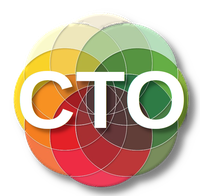WHY A CTO SHOULD _NOT_ JUST BE A GLORIFIED CODER/ENGINEER
Increasingly, in recent years, the title “CTO” has been used to induce engineers to provide underpaid—or even free—technical services. Not only is this reprehensible and unless you are a 501(c)3 non-profit, Social Purpose Corporation (SPC), or engaging actual contractors or Fraction C-levels, the "equity only" without any pay is usually illegal. This approach is also generally self-defeating because it will rarely entice a true "unicorn", and often not even basic competence.
Organizations that take such unpaid title-inflated approaches are generally encouraging very short-sighted tactical, non-scalable, insecure approaches, not thinking strategically, and in reality are usually just ultimately hurting the organization’s bottom line, their ability to act strategically, and long-term threatens the organization's very existence.
The role of Chief Technology Officer is an invaluably important C-Level strategic role and requires far more than simple technical acumen. Arguably, most unfunded startups should NOT have someone under that title unless they actually understand what a CTO is and is not.
I have worked in many roles over 30+ years in the technology industry, with many at a variety executive C-Level roles.
First for terminology clarification, since it varies somewhat throughout the industry, I differentiate between Chief Information Officer (CIO) and Chief Technology Officer (CTO) as:
-
A CIO is critically important for well-established larger companies and generally focused on strategic internal infrastructure maintenance, security, and stability as the highest priority. The CIO should generally be more risk averse.
-
A CTO is generally focused on both tactical near-term and strategic long-term innovation that enables organizations to grow, rapidly scale, and endeavor to out-perform the competition, striving for market leadership. The CTO should be courageously adept at balancing between innovation and risk management.
- A CITO or CTIO (Chief Information & Technology Officer or Chief Technology & Information Officer) is basically a combination of CIO and CTO, needing to balance internal stability and scaling with technological innovation and external scaling, and must strike a balance in risk management somewhere more in the middle of the usual CIO and CTO ends of the risk spectra.
In recent years the title of Chief Technology Officer (CTO) has undergone significant dilution, handed out like candy to lure in engineers to work for free or on the cheap.
If any organization is going to thrive and successfully adapt to changes in the modern market, its CTO must be a generalist who can move fluidly across specialties. For those companies that are technology-focused, the CTO's decisions will make or break the future of the organization, not through their coding acumen, but through their strategic insight. The decisions will impact the next 3, 5, or 10+ years (if the company exists that long).
Increasingly, especially in unfunded "equity only" or poorly funded equity-heavy startup offerings, the title of CTO is bandied about to lure engineers into working for free or on the cheap. Most of these hands-on technical "CTO" roles are really just senior engineers/developers/coders, who generally can only think (at best) tactically, lack strategic experience, thinking, and/or methodologies, and generally lack most of the skills associated with, and required for, any C-Level role. Lead Engineer, Senior Developer, Technology Manager, maybe even Technology Director, but once you start getting into the VP and C-Levels, the purely technical skill set focus and short-term tactical thinking is inappropriate for C-Level roles, and will generally paint companies into corners from short-sightedness, and very often, drive those organizations into oblivion.
The title of CTO should not be an excuse for unpaid and underpaid engineers. Even worse I am seeing an additionally disturbing growing recent trend in the postings on Linkedin and elsewhere for CTO's; basically a title buy-in with a requirement to invest in the company to be granted the title.
Technical Acumen is Important, but A CTO Must Be Much More

The CTO is an incredibly important and impactful C-Level role. I do agree with those who believe that a CTO should be required to have extensive hands-on experience. All the best CTOs I've met came up through the technical ranks. Those that came up through business or other non-technical roles (or that bought their way in through financial investment) have generally been terrible (like the Terry Colby CTO in Mr Robot). Equally terrible at the CTO role - though in different ways - are those that have been the purely technical CTOs, who frequently lack most/all of the required C-Level skills. A CTO requires far more than just technical acumen.
A good CTO needs to be a big-picture strategic generalist with many areas of specialty spanning years, a strong understanding of technology architecture understanding, and especially strong R&D skills. They should be someone that can quickly “soak up” new information and technologies and rapidly grok their strengths and weaknesses. The CTO must be able to determine the most effective ways to apply technology to the organization's longitudinal, and strategic, business needs, as well as its tactical needs. They must be able to draw on well-developed wisdom built up over the years from extensive hands-on experience, empirical analysis, valid and reliable applicable research, and evidence-in-practice, as a guide for the best solutions, and provide the ability to see many moves ahead with the judgment to avoid the pitfalls that most people lack the foresight to avoid. While the CIO is generally, and appropriately, risk averse, the CTO should be courageous and adept at risk management.
Technical, Strategic, & Public Face for Technology Companies

The CTO must be adept in communication and excel at both technical and "soft skills". Able to interface equally well with technologists, business leaders, sales staff, clients, the media, board members and other stakeholders, while providing inspirational mentorship, training, and impactful public speaking.
While Needing To Be Strongly Capable Hands-on, Should Only Do So Rarely, If Ever

I've been involved with technology (and have been online) since 1979. I started coding at 9 years old, with my first paid programming gig at 12 years old. I can be (and often have been) the hands-on guy who designs, builds, fixes, puts out fires, and scales everything from end-to-end. I’ve done this a number of times from versions 0-1, sustaining and scaling through versions 1 through 5+. With the (arguable) exception of early-stage startups (though should they actually have a "CTO" at that stage?). However, I believe that being the hands-on guy is not the role of a Chief Technology Officer. The role of CTO is categorically difference.
I love doing hands-on work as much as the more C-Level appropriate work, and so I do often find myself accepting hands-on work to "keep up my chops", but generally those should not be C-level positions.
Unfortunately, in recent years the title CTO has been highly diluted by organizations that use job postings for glorified coding and/or systems roles, in an effort to lure developers, engineers, & architects to work for them for free or cheap through the siren song of title and “equity” arrangements that have (very optimistically) a less than 1% chance of ever paying out. Worse yet, such equity-only roles are highly likely to be downright illegal.
A CTO should have “been there and done that” at every level of technology. They should have more than just a modicum of understanding of the business, sales, training, psychology, teaching, and mentoring aspects, with extensive experience in applying effective methodologies, critically necessary for such an important and impactful C-level role.
I believe a CTO should be a technologist that is the embodiment of facilitation between technology and business, who makes it possible for an organization to achieve its business vision through technology. They should be the bi-directional interpreter between the business staff and technology staff, fluent in both "languages", able to translate business needs and technology solutions. A CTO must be able to draw upon an extensive holistic understanding - of all the layers, on all sides - necessary for using technology as a means to achieve an organization's goals.

In sum, a truly great CTO must epitomize the crossroads (or Venn diagram) between leadership, mentorship, tactical and strategic thinking, business, sales, PR, and technology, excelling at making tangible an organization's vision, empowering the organizations to achieve its goals. To do this, the CTO should have “been there and done that” at every level of technology and be able to draw upon an extensive understanding—at every level—of the relevant technologies, as well as the current and future business needs, and the market forces that shape all of these.
About The Author, Hawke Robinson


"Hawke accomplished more in 3 months than his predecessors did in 2 years".
A Full and Fractional Chief Technology Officer (CTO) for multiple companies, including Practicing Musician S.P.C. Also known as "The Grandfather of Therapeutic Gaming". Hawke has 20+ years as a multidisciplinary and multi-industry Technologist, Recreational Therapist, Teacher, Mentor, Actor, Producer, Talk Show Host, Public Speaker, Musician, Writer, and published Researcher, ethically using innovation & technology to improve the human experience.
Executive Director, Chair, and Founder of the global non-profit 501(c)3 RPG Research, and founder of for-profit organizations: RPG Therapeutics, NeuroRPG, Hawke Studios, Hawke Enterprising, and Dev 2 Dev Portal LLC.
Additional Information:
-
Psychology Today Verified Professional Services Provider: https://www.psychologytoday.com/profile/378780
-
Amazon: https://smile.amazon.com/stores/W.A.-Hawkes-Robinson/author/B08PBQJMHM
-
Google Scholar: https://scholar.google.com/citations?hl=en&user=hfhEmQEAAAAJ
-
Semantic Scholar: https://www.semanticscholar.org/author/W.-A.-Hawkes-Robinson/2128778325
-
Researchgate: https://www.researchgate.net/profile/William-Hawkes-Robinson
-
Schedule a meeting with Hawke: https://calendly.com/hawkerobinson/
Relevant Work History
- CIO, PC Easy, 1996-1998
- Network & Systems Manager, Comspec Corp and SoftDocs Inc, 1998 - 1999.
- Network & Systems Director, Information Technology International, 1999.
- Chief Architect and Director of Operations, Franklin Covey 1999 - 2000.
- CTO, MightyWords (acquired by Barnes & Noble), 2000 - 2002.
- President, Dev 2 Dev Portal, 2002 - Present.
- President, MaladNet, 2002 - 2004.
- President, The Computer Schools, 2002 - 2004.
- Fractional CTO, CIO, Lead Researcher, Executive Director, Chair, and Founder, RPG Research, 2004 - Present.
- Data Scientist, Infoco, 2006 - 2012.
- Fractional CyberSecurity Chief Architect, Interlink Advantage (Acquired by Intrinium), 2012 - 2018 (intermittent).
- Fractional CEO, RPG LLC, 2014- Present.
- Technical Lead, LearningMate, 2021 - 2022.
- Fractional CTO & CIO, ManufacturingPower, 2022 - 2024.
- Fractional President, NeuroRPG, 2024 - Present.
- Fractional CTO & CIO, Practicing Musician SPC, 2024 - Present.
References
-
https://www2.techtalkhawke.com/news/dont-get-all-your-code-thrown-in-the-dumpster-fire
-
https://www2.techtalkhawke.com/news/80-of-projects-and-companies-dont-need-100-custom-coding
-
https://www.telegraph.co.uk/business/ready-and-enabled/cio-vs-cto/
-
https://adelinachalmers.medium.com/the-7-types-of-ctos-which-one-does-your-company-need-271afc27ce9a
-
https://www.techtarget.com/searchcio/definition/Chief-Technology-Officer-CTO
- https://adelinachalmers.medium.com/how-the-cto-role-is-changing-from-2025-onwards-b5abb5d2fa6f
- https://dadrian.io/blog/posts/cto/
